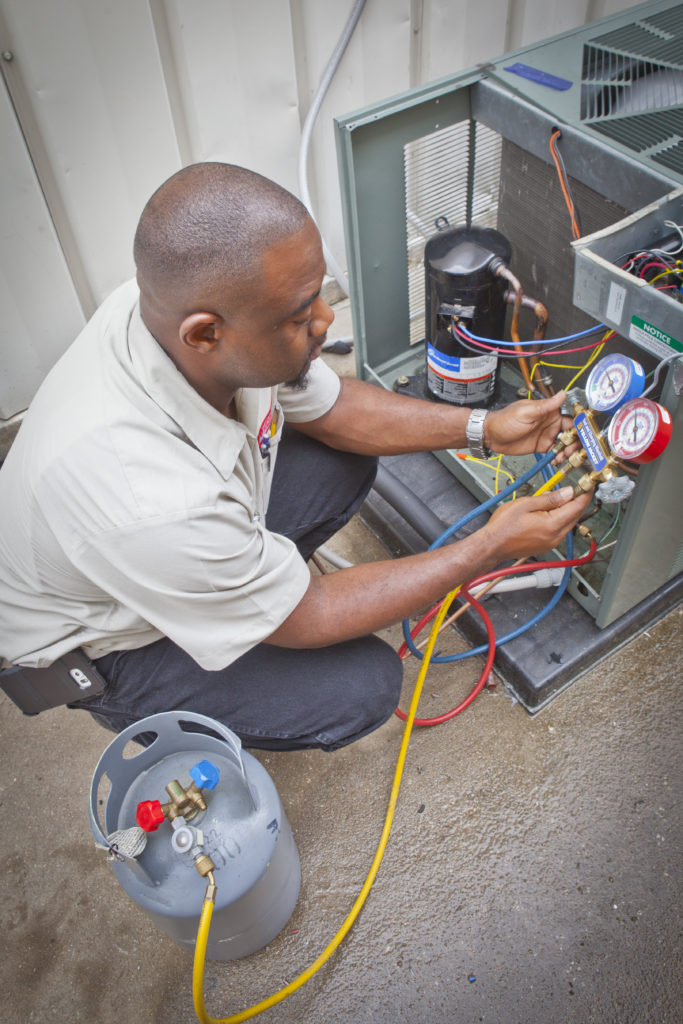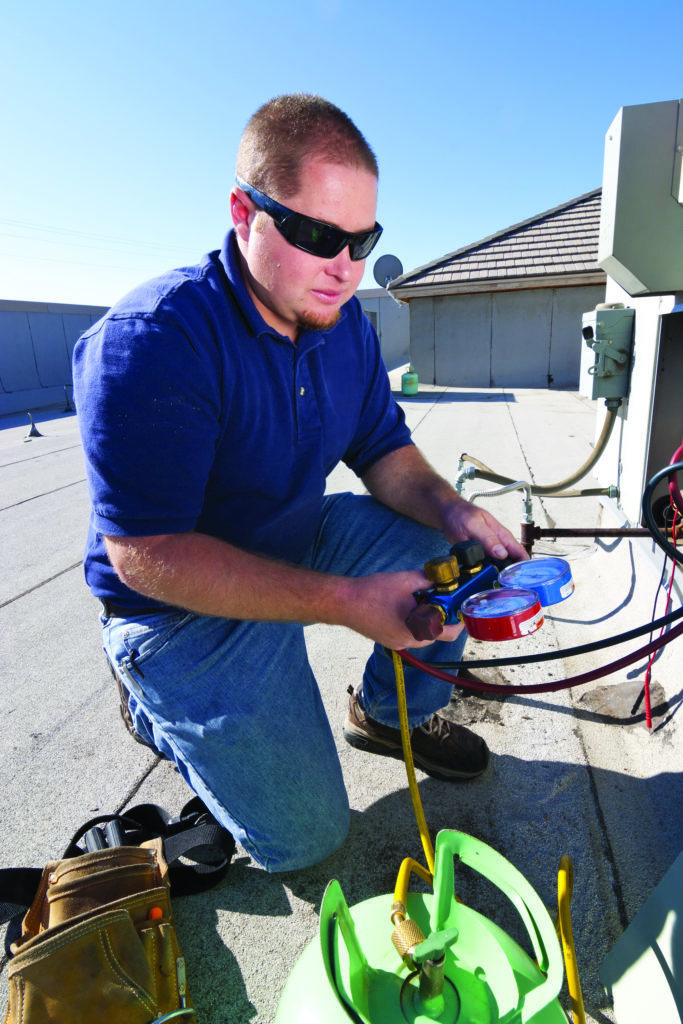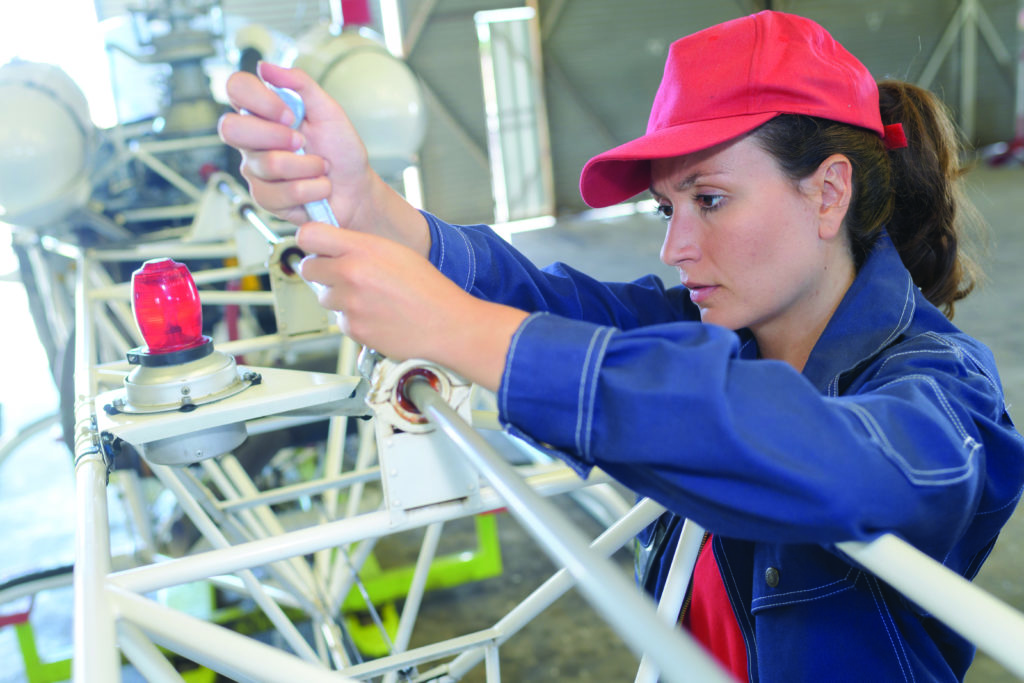How Hard Is HVAC School?
How Hard Is HVAC School?
Life with proper heating and air conditioning isn’t considered a luxury anymore. The advancements made in the HVAC (heating, ventilation, and air conditioning) industry have allowed most people in the United States to have some type of HVAC system in their homes and businesses to help regulate temperatures and air quality.
And with the rise of HVAC systems comes the need for those who can tune up, repair, or replace them when problems arise. The people responsible for this job are HVAC technicians. These professionals have extensive knowledge of all types of systems and can efficiently install, repair, or replace them.
While different states have different requirements when it comes to becoming a certified technician, most will require some sort of formal education and training. This is where trade schools come in. The Imagine America Foundation’s member schools provide hands-on training with leaders in the industry so their students can learn the most relevant trends and industry-standard equipment that they will encounter while on the job.
Being an HVAC technician might be something you have considered in the past but have not yet pursued. You might have questions or be wondering if it’s too hard to be beneficial.
That’s why we’ve broken down the skills and commitments needed in order to be successful in HVAC school. Here are our top 5 tips for earning an HVAC degree!
1. Decide what interests you early on and learn all you can
The HVAC world is divided into two main categories: commercial (business) and residential (household). At the beginning of your education, you’ll need to decide which area you want to specialize in order to receive the proper training in your area of interest.
Those who specialize in commercial HVAC will work in larger buildings like offices, factories, warehouses, and stores to install and repair those systems. If residential HVAC is more your style, you will be working in houses, condos, or apartment buildings to maintain household HVAC systems.
2. Installer or Repairman?
Once you have chosen either commercial or residential HVAC, the next choice will be whether you want to focus your work on installing or repairing systems. Most technicians like to become an expert in one of these areas, which helps them become more efficient—for both their clients and their company.
While some HVAC technicians do work in both capacities, most chose to specialize in one area.
3. Be Ready For Anything
HVAC school is a lot like being on the job when you’re a technician. Schools specially design programs so they can better prepare their students for real-life situations. Those who work as HVAC professionals must be creative, physical, and good at problem-solving—plus they should like working with their hands.
Each day on the job as an HVAC tech is different depending on the calls you receive. You’ll have to work in different types of spaces and explain to customers what you’re doing and why it must be done (which is why people skills are also very important). If you think you have these skills, then working in the world of HVAC might be the perfect fit!
4. A Jack Of All Trades
While you’re in HVAC school, you’ll need to develop an understanding of many different concepts. The trades field includes many other skilled trades within it, such as welding, plumbing, and electrical.
An interest in the areas of math and science is also important, since these machines will require you to use this knowledge while repairing or installing then. HVAC technicians should be able to compute basic math problems, including numbers with decimals or fractions.
5. A Supportive Environment
When you enroll in a trade school, like one of Imagine America Foundation’s member schools, to begin your formal HVAC training, you’re putting yourself in a safe and supportive environment.
These schools are dedicated to your success and want you to be able to learn all you can while you are there. Because of this, classes are tiered so that you learn basic safety information first. This allows you to feel more comfortable when you’re working in your higher-level courses on machinery that can sometimes be dangerous. Take advantage of the support systems provided to you by your school and professors and use them to your advantage.
Despite your hesitations, now could be the perfect time for you to begin a new career journey. If HVAC has always been an interest of yours or if you’re someone who likes to work with their hands, this career choice could be a perfect fit.
Don’t let your self-doubt or concerns that school will be too hard stop you from your dream job. Like anything that is worthwhile in life, you’ll need to work hard in order to be successful in completing HVAC school. But once you’re on the job as an HVAC technician, the steps you took to get to this point will have been well worth it!
More on HVAC
HVAC Careers with Lincoln Tech – Grand Prairie, Texas
Sponsored by: HVAC Careers with Lincoln Tech — Grand prairie, texas: Season 2, Episode 18 MORE FROM OUR EPISODE ON HVAC CAREERS WITH lincoln tech – Grand prairie, texas Where Is Lincoln Tech’s Grand Prairie Campus Located? CONTACT LINCOLN TECH – GRAND PRAIRIE Visit Their…
Choosing a Career Path in 2020: Mechanical Sciences
Choosing a Career Path in 2020: Mechanical Sciences Maybe school has never really been your thing. Maybe the idea of sitting behind the same computer, in the same desk chair, day after day is agonizing. Maybe the idea of doing the same thing for the…
HVAC Careers with Coyne College
HVAC Careers: Season 1, Episode 3 HVAC Careers with Coyne College – Season 1, Episode 3 Coyne College Coyne College has been training the American workforce since 1899. Learn More About Coyne Russell “Wicker” Freeman Our guest on this episode of Imagine America Radio is…
Leave a Reply Cancel reply
- - ADVERTISEMENT - -
Categories
- Alumni Series (13)
- Automotive (57)
- Aviation (15)
- Business (14)
- Business & Arts (18)
- Career College Expositions (7)
- Career Development (96)
- CCC Blog (1)
- CCC Podcast (9)
- College Resource (90)
- College Showcase – Lincoln Tech (6)
- College Showcase – New Jersey (8)
- College Showcase – Pennco Tech (1)
- College Showcase – Universal Technical Institute (2)
- Continuing Education (154)
- Cosmetology (3)
- Counselor Resources (108)
- Criminal Justice (3)
- Dental Assistant (2)
- Education (109)
- Financial Literacy (17)
- Health Sciences (50)
- Heritage Series (3)
- High School Recruitment Series (4)
- Housing Series (10)
- HVAC (8)
- Imagine America Scholarships (12)
- Information Technology (17)
- Massage Therapy (5)
- Mechanical Sciences (109)
- Medical Assistant (12)
- Millennial Student Series (4)
- News (11)
- Nursing (22)
- Online education (13)
- Pandemic Proof Series (4)
- Personal Finance (17)
- Podcast (90)
- Research (11)
- Road Map Series (2)
- Scholarships (12)
- Social Media Series (4)
- Strata Tech (3)
- Student Success (29)
- Study Tips (3)
- Time Managment (1)
- Top 10 (10)
- Trucking (2)
- Uncategorized (14)
- Universal Technical Institute (19)
- Veteran Affairs (8)
- Welding (24)
- Women in Skilled Trades (3)
Tags
- - ADVERTISEMENT - -






